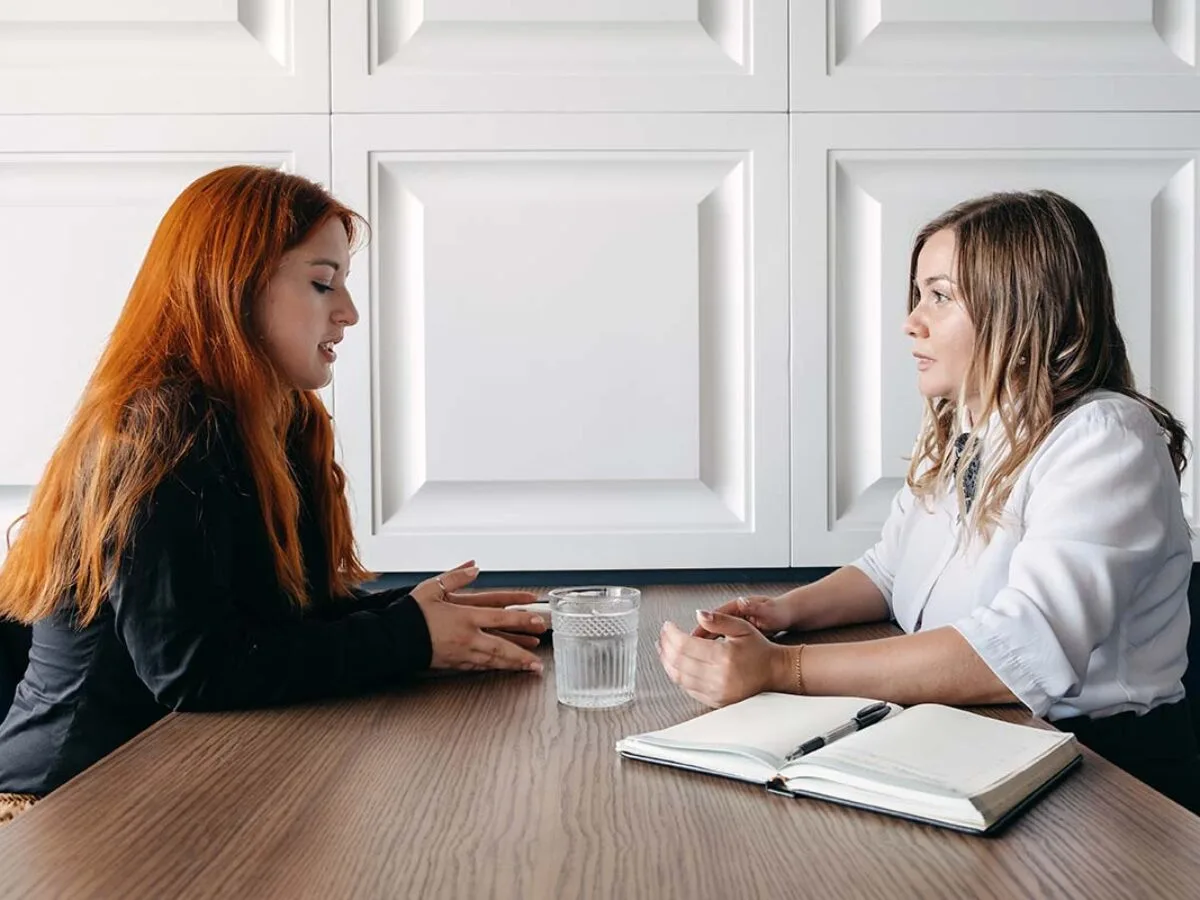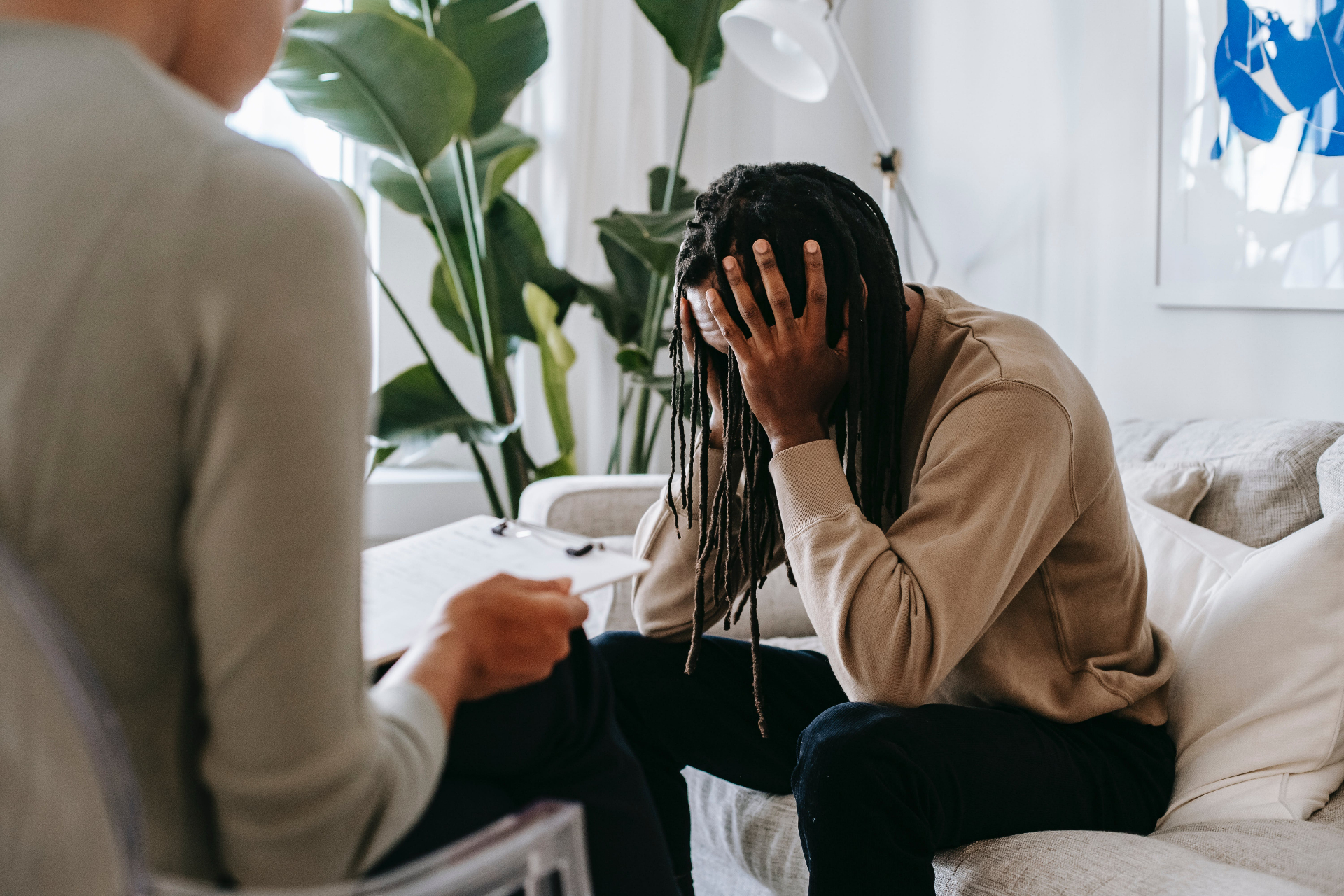Dealing with anxiety can feel like you’re constantly running a race without a finish line in sight. It’s like your mind is always buzzing with what-ifs and worst-case scenarios, making it hard to find peace. But here’s the thing—you’re not alone in this, and there’s help out there. If you’re struggling with anxiety, seeking the guidance of a therapist can be a game-changer. Today, we’re going to dive into the topic: “How Does a Therapist Help With Anxiety?” and even overcome anxiety, one step at a time.
What Is Anxiety?
Before we explore how a therapist can help, let’s get clear on what anxiety is. Anxiety is more than just feeling nervous before a big presentation or being worried about an upcoming event. It’s a persistent feeling of fear or dread, often without a clear reason, that can affect your daily life. You might experience physical symptoms like a racing heart, sweating, or shaking, as well as emotional symptoms like irritability, constant worry, or a feeling of impending doom. Anxiety can be overwhelming, but understanding it is the first step toward managing it.
The Role of an Anxiety Therapist
So, how does a therapist help with anxiety? The role of an Anxiety Therapist Arlington VA, is multifaceted. Therapists are trained professionals who use various techniques to help you understand your anxiety, develop coping strategies, and ultimately reduce its impact on your life. Let’s break down some of the key ways they do this.

Creating a Safe Space
One of the most crucial things a therapist provides is a safe, non-judgmental space for you to express yourself. This might sound simple, but it’s incredibly powerful. Many people with anxiety feel like they’re burdening others with their worries or that they should just “get over it.” A therapist, however, understands that your feelings are valid and important. In therapy, you can talk openly about your fears and concerns without fear of judgment.
Understanding the Root Cause
Anxiety often has deep-rooted causes that aren’t immediately apparent. A therapist can help you dig into your past and present experiences to identify the underlying issues contributing to your anxiety. Maybe it’s a traumatic event from your childhood, chronic stress from work, or even a combination of factors. Understanding the root cause of your anxiety is essential because it helps you see the bigger picture and start working on solutions.
Cognitive Behavioral Therapy (CBT)
One of the most effective therapies for anxiety is Cognitive Behavioral Therapy (CBT). This approach focuses on identifying and challenging negative thought patterns that fuel anxiety. An Anxiety Therapist Arlington VA will work with you to recognize these thoughts and replace them with more balanced, realistic ones. For example, if you often think, “I’m going to fail,” a therapist might help you reframe this thought to something like, “I might not succeed the first time, but I can learn from my mistakes and improve.” CBT is about rewiring your brain to think in healthier ways, which can significantly reduce anxiety.
Exposure Therapy
For those with specific phobias or panic disorders, exposure therapy can be incredibly beneficial. This type of therapy involves gradually exposing you to the situations or objects that trigger your anxiety in a controlled and supportive environment. Over time, repeated exposure can help you become less sensitive to these triggers, reducing your anxiety response. Let’s say you have a fear of public speaking. An anxiety therapist might start by having you speak in front of just one person, then gradually increase the audience size as you become more comfortable. Exposure therapy helps you face your fears head-on, building confidence and reducing anxiety.
Mindfulness and Relaxation Techniques
Anxiety often causes your mind to race, making it hard to focus on the present moment. Mindfulness and relaxation techniques are tools that therapists use to help you stay grounded. Mindfulness involves paying attention to the here and now without judgment. By practicing mindfulness, you can learn to observe your thoughts without getting caught up in them, which can reduce anxiety. Relaxation techniques, such as deep breathing, progressive muscle relaxation, or guided imagery, can also help calm your mind and body. An Anxiety Therapist Arlington VA can teach you these techniques and help you incorporate them into your daily routine, providing immediate relief when anxiety strikes.
Developing Coping Strategies
Therapy isn’t just about understanding your anxiety—it’s also about learning practical strategies to manage it. Your therapist will work with you to develop coping strategies tailored to your specific needs. This might include time management skills, problem-solving techniques, or ways to set boundaries with others. For instance, if you’re prone to anxiety when you feel overwhelmed by your to-do list, a therapist might help you break tasks down into smaller, more manageable steps. They might also teach you how to prioritize tasks or say no when you’re taking on too much. Coping strategies are essential tools in your anxiety management toolbox.
Support Through Medication Management
In some cases, anxiety can be so severe that medication is necessary to help manage it. While therapists aren’t typically the ones who prescribe medication (that’s usually a psychiatrist’s role), they can provide valuable support if you’re taking medication. A therapist can help you understand how your medication works, monitor its effects, and discuss any concerns or side effects you might have. Therapy, in combination with medication, often provides the best outcomes for people with severe anxiety. Your therapist can work closely with your prescribing doctor to ensure you’re getting the most effective treatment possible.

Building a Support System
Dealing with anxiety can be isolating, but you don’t have to go through it alone. A therapist can help you build a strong support system by encouraging you to open up to friends and family or by connecting you with support groups. Having people who understand what you’re going through and who can offer encouragement and advice is incredibly valuable in managing anxiety.
What to Expect in Therapy
If you’ve never been to therapy before, you might be wondering what it’s like. The first few sessions are usually focused on getting to know you—your history, your symptoms, and your goals for therapy. This is also a time for you to get to know your therapist and make sure you feel comfortable with them. Therapy is a collaborative process, so finding a therapist you trust and feel at ease with is important. As you continue with therapy, sessions might include talking through your thoughts and feelings, practicing new skills, or even doing exercises like role-playing to prepare for anxiety-inducing situations. Therapy is a journey, and progress can take time. But with commitment and patience, you can see significant improvements in your anxiety.
Finding the Right Therapist for You
If you’re considering therapy, finding the right therapist is key. Look for someone who specializes in anxiety and has experience with the types of therapy that are most effective, like CBT or exposure therapy. If you’re in the Arlington area, searching for an Anxiety Therapist Arlington VA, is a great place to start. Don’t be afraid to ask potential therapists about their approach to treatment and how they’ve helped others with anxiety. It’s also important to find a therapist who makes you feel comfortable. Remember, therapy is a partnership, and you should feel supported and understood by your therapist. It might take a few tries to find the right fit, but it’s worth the effort.
If you’re curious about “How Much Does Behavioral Therapy Cost?” Visit our blog page today to learn all about it!
Moving Forward With Confidence
Living with anxiety can be challenging, but therapy offers a path to healing and empowerment. By working with a therapist, you can gain the tools and insights you need to manage your anxiety and live a more fulfilling life. Therapy helps you understand your anxiety, develop coping strategies, and build resilience so you can face life’s challenges with confidence. If you’re struggling with anxiety, consider reaching out to a therapist. Taking that first step might feel daunting, but it’s a step toward a brighter, more peaceful future. Remember, you don’t have to navigate this journey alone—help is available, and it can make all the difference. Take the first step toward peace of mind with Elysian Psychological Services. Our expert therapists in Arlington, VA, are here to help you overcome anxiety and regain control of your life. Schedule your consultation today and start your journey to a brighter tomorrow.


